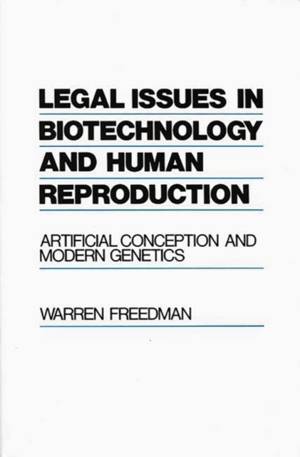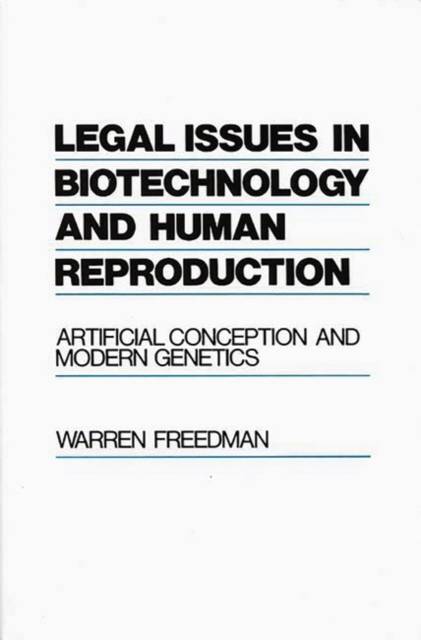
- Retrait gratuit dans votre magasin Club
- 7.000.000 titres dans notre catalogue
- Payer en toute sécurité
- Toujours un magasin près de chez vous
- Retrait gratuit dans votre magasin Club
- 7.000.000 titres dans notre catalogue
- Payer en toute sécurité
- Toujours un magasin près de chez vous
Legal Issues in Biotechnology and Human Reproduction
Artificial Conception and Modern Genetics
Warren Freedman
Livre relié | Anglais
161,45 €
+ 322 points
Description
In dealing with recent advances in biological engineering and human reproduction, we are confronted with legal, ethical, and religious questions for which there are no precedents. Warren Freedman undertakes a comprehensive examination of this topic. Sorting through the tangle of issues surrounding artificial insemination, surrogate motherhood, and other aspects of contemporary reproduction trends, Freedman attempts to clarify the rights and responsibilities of individuals, families, and society in the face of these new developments.
The author begins with a survey of the legal implications of nontraditional approaches to conception and birth. Separate chapters are devoted to artificial insemination and surrogate motherhood; and new concepts such as cryo-preservation, in-vitro fertilization, banking of sperms and eggs, and patentable new organisms are also discussed in detail. The author addresses questions of rights and liabilities as they apply to fetuses, donors, and adoptive parents, as well as the role of physicians and parenthood organizations, researchers, corporations, and government. Following a review of existing statutes, policies, and contracts that attempt to deal with these issues both here and abroad, he presents proposals that may aid in achieving equitable, uniform solutions. Freedman's book will be of interest to any citizen, group, or government agency concerned with these vital questions, and to professionals in law, government, medicine, human services, and industry.Spécifications
Parties prenantes
- Auteur(s) :
- Editeur:
Contenu
- Nombre de pages :
- 240
- Langue:
- Anglais
Caractéristiques
- EAN:
- 9780899306353
- Date de parution :
- 30-03-91
- Format:
- Livre relié
- Format numérique:
- Genaaid
- Dimensions :
- 156 mm x 234 mm
- Poids :
- 521 g







